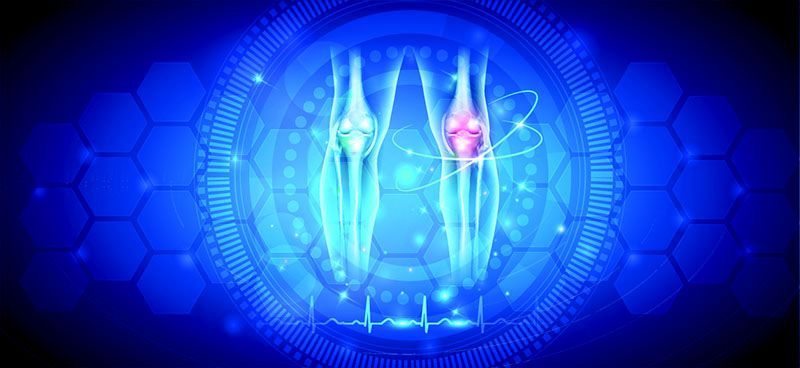
Holistic Treatments
If you’ve been paying attention to what is happening in the medical community, then it’s likely that you have heard about holistic medicine. However, to really understand the practice takes more than just a passing reference to the topic. Holistic medicine is a type of medicine that is concerned with the entire person. This practice specifically accounts for the body, mind, spirit, and emotions. The belief behind the practice stems from the idea that people can operate at their highest levels when all their systems are operating well and in balance with each other.
Practitioners of holistic medicine believe that if one of these systems is out of balance that it will affect all the other systems. In order to treat an individual, medical professional may utilize a variety of techniques. As an example, a patient that visits their doctor for a migraine may be prescribed a pain medication and sent home. When a physician takes a holistic approach though, they will look at a myriad of potential factors that are influencing and causing the headache. Therefore, a patient may still be prescribed pain medication, but will also be reviewed for issues with diet, sleep patterns, stress, and their spiritual outlook. After considering all the factors, a treatment plan will be developed for the patient.
Holistic Options
Holistic medicine offers a wide variety of treatment options to treat underlying conditions. We have compiled some of the standard treatment options below with some brief explanations. However, if you feel that holistic medicine is an option for you, you should consider contacting a holistic medical professional today to get more information.
Patient Education – Holistic medicine believes that every person can heal themselves. It should not be a surprise that patients that know more about themselves and their condition have better results in their treatment. Education may cover diet, exercise, and counseling as it relates to the patient's needs.
Alternative Medicine – In order to treat the whole body, alternative medicine is another option that may be used as part of a patient’s treatment plan. These treatments may include chiropractic care, massage therapy, acupuncture, or naturopathy.
Western Medicine – In order to treat the whole patient, sometimes, Western medicine will offer an additional or complementary benefit. These treatments may include medications or medical procedures in order to correct any underlying issues.
Chiropractic Holistic Medicine
Many patients that opt for a holistic approach to their medical needs will find that chiropractic care becomes one of the most critical aspects of their treatment. Chiropractic offers a non-invasive approach to helping with many medical issues. Chiropractic care has been found to help with back and neck pain, nerve pain, gastrointestinal issues, and even ear infections.
Chiropractors are highly trained medical professionals that have received specialized education in understanding the role that your spine and the associated nerves play on your wellness. Chiropractors understand your individualized needs and don’t prescribe to a one size fits all approach. Additionally, chiropractors have access to the latest medical equipment and can confidently come to an appropriate and accurate diagnosis.
Chiropractic has been used for generations to help patients heal without invasive procedures or utilizing potentially dangerous prescription medications. This field of medicine has been determined safe and effective for use on every population including the elderly, infants, pregnant women and everybody in between.
Overview
If you have a health concern and are considering your options, you should consider meeting with a chiropractor. They will conduct a detailed review of your medical history and perform a physical examination to help determine the best course of action for you. With a long and safe history, you should rest assured knowing that your treatment is in capable hands.

How Chiropractics Can Help with Weight Loss
Many people today struggle to maintain their waistline. There have been a significant number of studies that correlate our weight, or rather, excess weight, to shortened lifespans, reduced quality of life and an increase in all sorts of diseases. People are often focused on the newest fad diet or exercise routine to help them reduce their body fat percentages and maintain weight loss. A visit with your chiropractor adds another layer to your ability to fight the battle of your expanding midline.
Chiropractic and the Impact on Weight
At the beginning of each January, weight loss fads and gym membership applications skyrocket, only to taper off during the next few months. People often focus on one aspect of their lifestyle to reduce their weight. However, these aspects don’t focus on an overall healthy lifestyle. If you can change your focus to be living better for the rest of your life, you may start to find that you can bring some balance to your future weight loss endeavor. When used as a part of your weight loss routine, people that receive chiropractic care see faster and longer lasting results.
Chiropractic adjustments aren’t considered a cardio workout in themselves, but patients who are maintaining a healthy diet and getting regular exercise can really benefit from adjustments. Chiropractors can help to keep us free from injury and reduce fatigue. Additionally, chiropractic adjustments are also linked to our digestive systems. This allows our bodies to readily process the foods that we eat to properly fuel a workout while disposing of the waste.
A Properly Aligned Spine
Athletes at any level are at an increased risk for injury. The physical movements that we make when we work out can place additional stress on all our joints making movement more difficult. When we feel pain in our joints, we tend to reduce the workload. Chiropractic adjustments help to keep your joints in their best physical condition. It should be no secret, that when you feel better, you can work harder. Your increased output will result in more calories burned. When this is paired with proper nutrition, you can expect to see big losses on the scale.
Many chiropractors are specifically geared to work with weight loss. In addition to specialized techniques that help keep you in the best shape, they can offer exercise and nutritional information. If you’re considering pairing your weight loss plan with chiropractic talk to your chiropractor. They are a wealth of underutilized knowledge.
Barbells and Chiropractors
When we think of building lean muscle, we often think about lifting barbells and dumbbells, but studies show that the act of getting an adjustment can lead to better muscle tone. As our bodies build muscle, the fat that we consume isn’t immediately placed into stores. This means that it makes it harder for the body to gain additional weight.
Additionally, properly aligned joints and the adjustments themselves can lead to reduced muscle fatigue and more rapid healing than rest alone. Chiropractic adjustments allow your muscles to relax which puts them into the best state to be healed.
Stopping Injuries Before They Stop You
Chiropractors are experts at spotting issues with our joints and alignment. As they work through your appointment, they may find issues before they become more serious. This allows you to take precautions before you really hurt yourself and sideline your weight loss plan. If you can recognize the injury early, it takes less time to heal, and you have a better chance of a full recovery.
Overview
If you are getting serious about fighting for your health, it’s time to cut out the extra weight. While you should consider a multi-faceted approach, you should also work with your chiropractor to identify the best plan for you. With their ability to keep your body in top operating condition, their advice on exercise and nutrition can also be invaluable and help you reach your goals.

Common Myths About Chiropractic Care
There is a lot of information (and misinformation) that people find online today. When it comes to chiropractors, these myths can become difficult for many people to identify. We’ve compiled a list of some of the most common myths and misconceptions about chiropractic care below. It is our hope that understanding the truth about chiropractic care can help patients seek the care that they need and deserve.
Chiropractic is Dangerous
Many people feel a fear about having their neck and back adjusted or manipulated. While these fears can be understood due to the perceived weakness of the neck and back from movies, chiropractors are specially trained to perform these techniques. In fact, chiropractic is safe for the elderly, infants, pregnant women, teens, and many other demographics. It’s difficult to find medical procedures or even medications that have this wide range of patient population.
Chiropractic Treatments are Expensive
Many insurance companies consider chiropractic care a covered procedure, meaning that you may only be responsible for a copay, or even nothing to receive your chiropractic care. Medicare and Medicaid offer coverage for chiropractic care.
Recent studies show that chiropractic care is one of the most affordable and cost-effective treatment options for patients. Studies like this have helped insurance companies justify and even prefer chiropractic care for their clients.
Chiropractic Care Must be Used for the Rest of Your Life
Many chiropractic patients visit a chiropractor for a specific issue. However, your chiropractor will help you develop a specific treatment plan designed to manage and correct your issues. At the conclusion of this treatment plan, the benefits are often so striking that many patients continue to see a chiropractor on a regular basis even though the original issue has been resolved. These patients see their visits as routine checkups. If they decide to stop these visits, it does not mean that they will be harmed, and there are studies to suggest that the benefits of chiropractic care last well after the last adjustment.
Chiropractors Aren’t Real Medical Professionals
The modern certification process for chiropractors is exceptionally rigorous. In fact, current chiropractic students complete more in-class instruction than medical students. Chiropractors must also complete a residency program and pass four national and the appropriate state board tests in order to receive their certification. Many chiropractors are also required to complete a full year of Ph.D. level nutrition classes too. This means that not only are they medical professionals, but they are adequately equipped to help you with many of your health needs beyond the neck and spine.
Chiropractic Care Isn’t Effective
This myth continues to be pushed by people who haven’t ever received chiropractic care. Many patients have received excellent care and help with their conditions through chiropractic care. Adjustments and spinal manipulations have been used to help treat migraines, back pain, earaches, neck pain, arthritis, pregnancy, blood pressure issues, and generalized joint pain. If chiropractic care wasn’t effective, insurance companies would not cover this procedure.
Chiropractic Isn’t Safe for Kids
Chiropractic care is especially important for kids. Their rapid growth and high activity levels mean that they are prone to injury. If children aren’t treated quickly for their injuries, it can impair their proper growth and development.
Chiropractic care has been found as a safe and effective treatment for many demographics, including children. Many parents opt for chiropractic care rather than many medical procedures or potentially dangerous medications.
Overview
Many of the myths about chiropractic care mask the great benefits that this medical field can have for your life. Chiropractic care requires less downtime or recovery than most medical procedures and avoids or reduces the need to use medications that contain opioids. With these benefits, it’s hard to imagine why you shouldn’t consider chiropractic for your treatment.

Work Related Injuries
Every profession today has some level of risk for employees to receive an injury at work. Office professionals are at an increased risk for the neck, back or carpal tunnel injuries. Employees that work in physically demanding positions can experience an injury due to the physical demands or repetitive motions that they conduct throughout the day. No matter what profession you are in, injuries that are related to your work are stressful. Unfortunately, employees are often left with the decision to continue working through their pain or take the time off to allow for the proper treatment and healing.
One recent study found that individuals that received chiropractic care as part of their injury treatment were able to return to work more quickly than those who did not. Additionally, people who reported receiving chiropractic care for neck and back pain had less than two hours of missed work per year as an average. It is essential to understand the types of injuries that many employees sustain before you can find the best way to treat those injuries.
Common Types of Work Injuries
Force – Force injuries are caused by overexertion or strain on the muscles or joints. These injuries are typically the result of improper lifting or lifting objects that are too heavy.
Posture – Poor posture or slouching can result in additional strain on the joints in your back and neck. This can be compounded when individuals are in an office setting and retain these positions for long periods of time.
Repetition – Employees that repeat the same motion over time are at an increased risk for repetitive motion type injuries. These injuries occur because the muscles become fatigued and can no longer adequately perform the required movement, or the joints can wear down over time causing an injury.
Stress – Emotional stress can manifest in physical injuries. Employees that are under constant or extreme stress often keep their muscles tensed and rigid. This stress leaves employees at increased risk for injury or accident.
Chiropractic Care Help
Chiropractors have a long and successful history of helping employees recover from their injuries and return to work. In fact, chiropractic care has been shown to return employees back to their workplace faster than many other methods of treatment.
Chiropractors often utilize manual manipulation to help correctly align the spine and reduce pressure on the nerves that travel through the spinal column. Chiropractors can perform these non-invasive techniques that require little to no recovery time. This is in direct contrast from surgeries that often require extensive preparation and recovery. Operations are also prohibitively expensive for many patients.
Chiropractic care is a safe and effective treatment that offers benefits after the first treatment and have also been shown to last long after the last treatment. This style of treatment also can help to avoid or eliminate the need for using potentially addictive and lethal pain medications.
Research has shown that chiropractic care offers one of the most successful treatment options for people who suffer from lower back injuries. This leads to employees who can return to work more quickly than their counterparts. They are also less likely to experience lingering issues after their treatment has concluded.
Overview
Injuries or accidents that occur as part of a workplace incident can be difficult to navigate. However, patients who choose to use chiropractic care as part of their treatment plan are more likely to return to work more quickly than people who don’t. Chiropractic care has also been found to be more effective and less dangerous than many other options. If you are the victim of a workplace accident or injury, you should contact your chiropractor today to develop your individualized treatment plan.

Chiropractic Care for Ear Infections
If you have children of any age, it’s likely that you have intimate experience with ear infections. Five out of six children will have experienced at least one ear infection before they are three years old. Younger children are far more prone to ear infections, and as they age, they may “grow out” of them.
Researchers believe that younger children are more susceptible to ear infections because their eustachian tubes are shorter and angled. This makes them more prone to bacteria that can cause an ear infection.
While ear infections are the most common in children, they are a common ailment that affects many of us throughout our lives. Ear infections are particularly painful and bothersome because of the sensitive nature of our ears. They also threaten to leave lasting damage if they aren’t adequately treated.
Many people jump automatically to medications to correct the issue. However, some of the complications associated with medications, especially for children can be a cause for hesitation. If you are considering alternative options, chiropractic care is worth looking into.
Symptoms and Causes of Ear Infections
Ear infections are caused by a virus or bacteria that infects the middle ear. This can cause the middle ear to become inflamed and hold fluids that lead to a buildup of pressure. This pressure can be excruciating. Colds, flu, and allergic reactions can all lead to ear infections. These illnesses can result in a swelling of the ear that blocks fluid from draining from the eustachian tubes, nasal passages, and throat.
While ear infections are often straightforward to diagnose in our own bodies, they often manifest in children that haven’t yet conquered the ability to communicate their discomfort. In these situations, it’s important to know the range of symptoms for an ear infection.
Fever
Ear redness
Ear pain (infants may pull or rub their ears)
Difficulty sleeping
Fluid drainage from the ear
Loss of balance
Headache
Diminished hearing
Treatment Options for Ear Infections
Medical treatment is often the first option that people use to heal their ears. Pain can be significant, and in some of these situations, doctors may prescribe pain medications that contain opioids. Opioid medications have been the target of many news reports and government policies due to their destructive nature.
Opioids are very addictive and have the potential to cause severe damage or death if they are not used properly. Many patients have found that the potential risks are not worth their benefits. If you are concerned with using these medications, you may want to consider a safer treatment option.
Chiropractic care is a great option for many individuals that suffer from ear infections. In fact, chiropractic care may even reduce the effects of chronic ear infections, or prevent you from ever getting an infection.
A 1996 study found that patients that used chiropractic treatment for their ear infections had a 93% improvement rate. With the success rate of chiropractic care, the lack of exposure to potentially harmful medications, and no invasive procedures, chiropractic care might be the successful treatment that you’ve been looking for. Chiropractic care for the treatment of ear infections is safe for children and adults.
How it Works
Your chiropractor will explain how they are going to help alleviate your ear infection in more detail. Typically, your chiropractor will review your case and then perform a series of adjustments in specific areas that are targeted to align the joints and reduce pressure on the nerves. When the nerves can fully function, they can help to alleviate the issues that are causing your ear infection more quickly.
Overview
It’s very likely that you or your children are going to fall victim to an ear infection at some point. You may want to consider a trip to the chiropractor to evaluate your condition for their services. Chiropractors offer safe, drug-free options for the treatment of several health conditions, including ear infections for people of all ages. Call to schedule an appointment with a licensed chiropractor today.

What to Expect at Your First Chiropractic Visit
While many people have known some general information about a chiropractor, not everybody knows what to expect when you schedule your first appointment. While the process is not complicated, the lack of understanding can create undue stress on patients before they even arrive in the office.
Chiropractic appointments are something that many patients look forward to. We have compiled some information to let you know what to expect for your first visit.
Schedule an Appointment
While chiropractic offices pride themselves on being able to take care of your needs, it’s always a good idea to schedule an appointment in advance. We all know that emergencies can happen, but by scheduling in advance you are in a better position to get the prompt service that you’d like, and the meticulous care that you expect.
Ask Questions
When you call to schedule your first appointment, it may also be a good idea to ask some initial questions or interview your potential chiropractor. While it is a good idea to ask any questions that you have, there are some that you should make sure to understand because the answers can vary widely.
Is the chiropractor licensed?
What is their education and experience background?
What is your chiropractor’s philosophy of care?
It may also be a good idea to call a few different offices to find the best fit for you. Your back pain can be a complicated process, and you want to know that your chiropractor matches your needs.
Come Prepared
Before a chiropractor ever does an actual physical exam, you will fill out a medical questionnaire. You should be prepared to answer questions about your family history and your own background. If you have an extensive medical experience, you should also consider bringing in supporting documentation so that your chiropractor can understand all of your detailed needs.
In addition to these questions, you should be prepared to answer questions about the specific nature of your appointment that day. These questions can include:
How did the pain begin?
When did the pain start?
Describe the pain (sharp or dull, pressure or stabbing, does it radiate, does it change intensity)?
Did the pain begin following an injury or a movement?
Is there anything that you do that makes the pain better? Worse?
The answers to these questions can help your chiropractor identify some of the immediate treatment options that might be right for you. You should feel free to discuss those options and their benefits or potential drawbacks.
The Exam
Once you are through the background, your chiropractor will conduct a physical exam. The exam will include general medical information like blood pressure, pulse, respiration. In addition, your chiropractor will also want to test your reflexes and complete orthopedic tests to explore your range of motion, muscle tone, strength, and neurologic integrity.
These tests will help to refine further which treatment options will be right for you and to assess the seriousness of your injury.
Additional Studies
If your chiropractor has reviewed your history and completed a physical exam, they still may not be able to rule out all the possible causes of your pain, or they may want to explore the extent of the damage further. In these cases, you may be asked to complete some additional testing. These tests include X-rays, Magnetic Resonance Imaging or MRI, or other laboratory tests. These tests can help to ensure that you receive the proper care and treatment that is individualized to you.
Diagnosis
After your chiropractor has gathered enough information to present you with an accurate diagnosis and treatment options, they will work with you to find what option will work best. They should also discuss the length of these treatments with you. If you have questions, you can request written information that you can review at your own pace. Choosing the right option for you will lead to faster and longer lasting results.

Conditions: Neck Pain
Neck pain is a relatively common problem, and most of us will experience some degree of discomfort in this part of our body at least once in our lifetime. In most cases, neck pain will improve and disappear on its own, but if you frequently suffer from this problem, or find that conventional ways of relieving your pain are not working, you may wish to consider chiropractic care.
About neck pain
The neck is highly important part of our body, containing the very top of the spine, called the cervical spine, and many blood vessels and nerves that supply structures including our esophagus, larynx, trachea and thyroid gland. The neck is also home to major blood vessels including the carotid arteries and jugular veins.
When there is tension in the neck, it can have a significant impact on the flow of blood between the head and body, as well as causing compression of the nerves and potentially the spinal cord. When this happens, it can have an effect on other areas of the body, including the upper and lower limbs.
What causes neck pain?
In many instances, the exact cause of neck pain may never be known. However, some of the most common causes believes to be behind the majority of cases include:
Sleeping in an awkward position
Bad posture
Trapped nerve
An injury, such as from a vehicle collision or fall
The pain you experience may also differ. It may be a dull ache that persists no matter what position you place your head in. Alternatively, you may experience a sharp pain when you place your head a certain way, or perform a specific movement, such as turning your head from side to side.
In many cases, neck pain may be accompanied by other symptoms, including swelling or inflammation in the neck, pain that radiates into the shoulders or upper arms, or headaches.

Conditions: Headaches
A headache is a very broad term given to pain that is felt in the head or sometimes the neck. There are many different types of pain, from acute localized discomfort to a more generalized ache, and while some headaches appear suddenly and only last for a short time, others may build gradually and last for several hours.
Types of headaches
While experts have identified more than 150 different types of headache, some are more common than others. These include:
Tension headaches
By far the most common is a tension headache, which is usually attributed to stress. They tend to come and go and cause mild to moderate pain with no other symptoms.
Migraines
These are often considered to be more painful than a tension headache. They also last longer, anything from a few hours to a few days, and are accompanied by symptoms such as sensitivity to light, smells or sound, nausea and vomiting, blurred vision and loss of appetite. Some people suffer from recurrent migraines and may experience several or more in a month.
Cluster headaches
Cluster headaches, perhaps unsurprisingly, tend to occur in groups, and are more common in men though there is no evidence to suggest why. The pain of a cluster headache tends to be burning or piercing and localized behind or around one eye. It also tends to be so severe that the patient can’t function properly until the pain eases and may just pace during an attack.
Sinus headaches
These tend to happen if you have a cold or a sinus infection. With a sinus headache, the pain is felt in your cheekbones, forehead or bridge of your nose, which is where your sinuses are located. It is actually caused by your sinuses becoming swollen. The pain of a sinus headache is usually improved by taking an anti-inflammatory pain tablet.
There are a range of things that you can do to help one-off headaches, such as taking pain medications, drinking plenty of water and trying to relax somewhere calm and quiet. However, if you suffer from recurrent headaches then you may wish to consider chiropractic care, which has been shown to be very successful in providing relief and even helping prevent this type of pain.

Conditions: Sciatica
Sciatica is a condition that affects many people today. It typically manifests as pain in the lower back or buttocks that radiates down to the legs or feet. This pain can be felt in one or both legs. The pain can often be difficult to describe. Patients have found that the pain can change in frequency or intensity.
This pain can range from mild to severe and debilitating at times. The pain itself can also change in how it is felt. Sometimes it is like pins and needles, and other times it may be described as dull, or even like electric shocks.
With all the discomfort that sciatica patients experience, they can often be willing to do anything to alleviate the condition. Understanding a few things about sciatica may help you decide what is best for you.
What Causes Sciatica?
Sciatica is understood as nerve compression of the sciatic nerve. This compression can occur as the sciatic nerve leaves the spinal column and travels down to the legs. There are many possible causes of sciatica that vary in their severity.
Subluxations – subluxations occur when the vertebrae in the spine are misaligned. These misalignments can cause restriction or pressure on different nerves. Subluxations on the sciatic nerve are a common occurrence for many patients.
Herniated or bulging discs – The padding or discs between the vertebrae can be damaged or deformed. This can create issues with the sciatic nerve that result in sciatica.
Pregnancy – The drastic changes that occur to a woman’s body during pregnancy can create issues along the pelvis and spinal column. Some of these issues may cause a problem with the sciatic nerve.
Tumors – A potentially severe issue occurs when a tumor grows in or along the spinal column. One of the first signs of tumor growth in your spine may be a change in sensation that is caused by the tumor placing pressure against your nerves. Your chiropractor can help diagnose the cause of your discomfort and ensure that you get the appropriate treatment.
Piriformis syndrome – The sciatic nerve travels underneath the piriformis muscle. This muscle can be damaged in slips or falls. If the muscle experiences a strain or tightness, it may affect the ability of the sciatic nerve to function. Cramping or twitching of this muscle can also trigger pain associated with sciatica.
Diagnosing Sciatica
As you have just read, sciatica can be caused by a wide range of issues. Several concerns may extend beyond your discomfort when considering an appropriate diagnosis. Any time that your nerves are affected, there is a range of potential causes that should be thoroughly investigated to receive a proper diagnosis.
Additionally, if you don’t properly diagnosis your issue, the subsequent treatment may be ineffective. This leads to continued pain and frustration on your part. Make sure that you work with a licensed chiropractor to receive the best care possible.
Using Chiropractic Care to Treat Sciatica
If you have worked through a diagnosis with your chiropractor and decided that chiropractic care is the best option for you, then you can begin your treatment plan immediately. You should make sure to ask questions about your plan and adjust as you need them. Your chiropractor will likely use several different treatment options in the treatment of your sciatica.
Ice or Cold Therapy – These methods use temperature cooling to reduce inflammation that may be contributing to your sciatica.
Ultrasound – Ultrasound produces radio waves that result in a gentle massaging sensation. This helps to stimulate the muscles and nerves and reduce your sciatica pain.
Electrotherapy – This therapy uses gentle electric pulses to stimulate and heal the muscles around the joints.
Spinal Manipulation – Your chiropractor may also help to align the vertebrae in your spine to relieve pinching or pressure on the sciatic nerve. You may experience some cracking in the spine as the chiropractor can release gases from the spinal column and reduce overall pressure.
Overview
If you are experiencing sciatica, meet with a licensed chiropractor to receive the proper diagnosis and get your personalized treatment plan. You should leave with a better understanding of what type of results you should expect and how long your treatment will last. Chiropractic care for your sciatica offers one of the safest and simple procedures possible to produce the most significant positive effects for you.

Conditions: Herniated Disc
Intervertebral discs are found throughout the spinal column except for the C1 and C2 vertebrae (the Axis and Atlas). These discs act to cushion the vertebrae from each other and the impacts that are felt throughout the spinal column. While many people will describe painful back issues as a “slipped disc,” this isn’t really the case. The intervertebral discs don’t slide out of place, but they may experience a bulge. This bulging disc is also called a herniated disc.
Causes of a Herniated Disc
Herniated discs may occur for a variety of reasons. A damaged disc may be the result of poor posture or due to the patient being overweight which places additional stress on the spinal column. Discs may also become herniated due to a sports or traumatic injuries.
Some patients have even suggested that relatively minor activity, like a sneeze, has caused a herniated disc. This may be true because herniated discs can also be the end result of a long-term weakening of the disc until a small movement finally makes the injury apparent.
Signs of a Herniated Disc
The signs and symptoms of a herniated disc can vary widely. This is mostly because a damaged disc at a different point in the spinal column can manifest in different ways. Discs that are damaged in the lower back may cause intense pain in the legs, lower back, or buttocks. If the herniated disc is in the neck pain is more likely to present in the shoulder and arms. The pain experienced from a herniated disc can also be felt as sharp and shooting pain when you sneeze, cough or move in a specific position.
Many people who have experienced a herniated disc also describe a numbness or tingling to their extremities. This numbness and tingling may be felt in the same areas as pain and is related to the location of the herniated disc.
The longer that an individual goes with a herniated disc, the more likely they are to also experience weakness. This is due to the inability of nerves to properly communicate with the affected body parts. The lack of signal leads to muscle atrophy and a weakening of the muscles.
Treatment Options
If you are experiencing shooting pain in the arms, shoulders, legs or buttocks and it is accompanied by numbness or tingling, you should consider seeking medical treatment. Many people often consult with their chiropractor first. Chiropractors can offer a treatment plan that is specifically designed for you.
Your chiropractor may recommend including adjustments or manual manipulation in conjunction with therapeutic exercises to help relieve your pain and correct the problem.
Chiropractic adjustments are designed to help your herniated disc in a variety of ways. Typically, manual manipulations are designed to ensure that your spine is in the correct position. Proper spine alignment can help with the effects of a herniated disc by moving the disc away from the nerve or by reducing the pressure that is causing the disc deformity.
Nerves that are impinged against the spine or that are subjected to increased pressure can be the cause of your pain or numbness. The proper spine alignment can help the disc resume the appropriate shape and allow it to heal. Manual adjustments have also been shown to increase the disc height which offers additional cushioning for your joints.
Overview
A herniated disc can be an excruciatingly painful experience. Individuals that experience a herniated disc are often desperate to find immediate solutions to their pain. Utilizing chiropractic care is a non-invasive technique that doesn’t require lengthy recovery times that are needed by surgeries. Additionally, chiropractic care may help to reduce or eliminate a patient’s need for potentially addictive medications. If you are experiencing pain and suspect that you may have a herniated disc, you should schedule an appointment with your chiropractor today so that they can help you return to a pain-free life.







